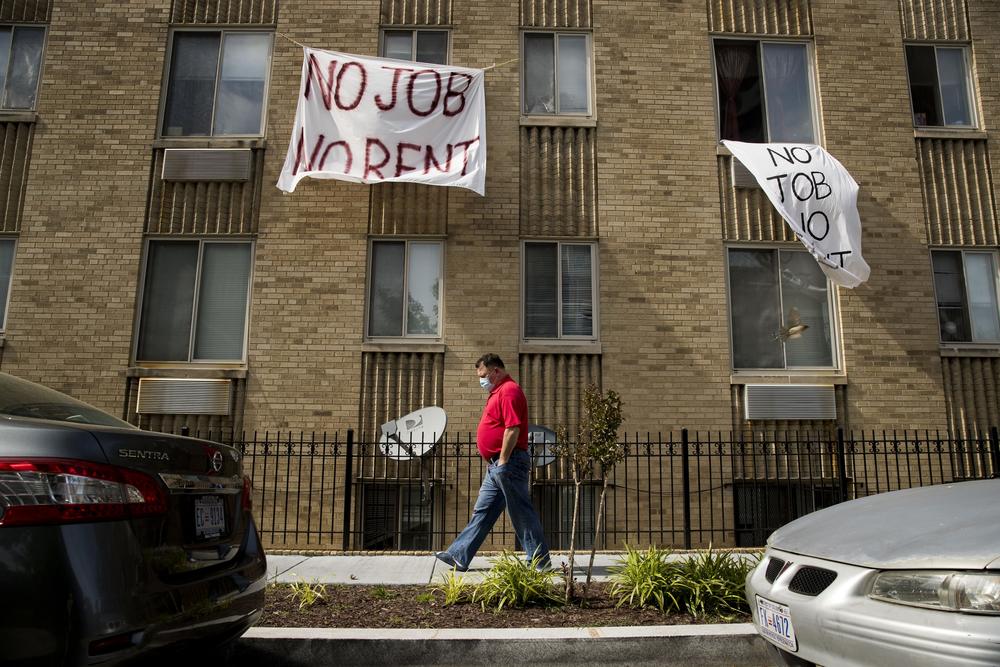
Caption
Signs that read "No Job No Rent" hang from the windows of an apartment building during the coronavirus pandemic in Northwest Washington. With the end of CARES Act protections at the end of July, experts are concerned an eviction crisis could hit as soon as the end of August.



